“Ohio 4-H professionals are incredibly talented and work hard to provide outstanding programs for youth. We are proud their efforts are recognized nationally.” stated Dr. Kirk Bloir, State 4-H Leader and Assistant Director of Ohio State University Extension.
Ryan has been the 4-H Extension Educator in Champaign County for 18 years. She serves on the state-wide Workforce Development Team, Animal Science Team, and is Treasurer of the Ohio Extension Professionals. She has taught at several state and national conferences and chaperoned multiple Ohio youth on national trips. Champaign County has 66 county 4-H clubs with 1,764 youth participants and 208 volunteers. Those who are selling or renting to beginning farmers would be eligible for tax credits.
Senate, it passed with broad support, a 96-1 vote, in the House. The bill was sponsored by Rep. Susan Manchester, R-84, and Rep. Mary Lightbody, D-19.
HB 95, the Family Farm ReGeneration Act, will authorize tax credits for those who sell or rent farmland, livestock, buildings, or equipment to beginning farmers. It also provides a credit for beginning farmers who attend a financial management program. During her floor speech, Manchester noted that the average age of the U.S. farmer is 58. “By decreasing their tax burden, House Bill 95 incentivizes retiring farmers to recruit beginning farmers to take over their operations,” Manchester said. “This program also sets beginning farmers up for success by giving them an opportunity to learn more about the financial management of a farm operation.” Under the bill, the credit is limited to five years and allows up to $10 million for the total amount of tax credits awarded over those five years. A similar program was implemented in Minnesota in 2018, which has already enabled 162 established farmers to sell or rent land to beginning farmers and allocated $1.4 million in tax credits. During testimony, Bennett and Liza Musselman, part-owners and operators of Musselman Farms in Pickaway County, said, “Farm Service Agency provides opportunities for young and beginning farmers, but the time that it takes from application to loan closing is significantly longer than a traditional loan. “Young farmers have an added obstacle of finding a seller that is willing to wait additional days for a sale to be completed. The passage of HB 95 will give a financial incentive for sellers to work with a young beginning farmer, and thus help level the playing field.” To qualify To qualify, a beginning farmer would have to intend to farm in Ohio, or have been farming in Ohio for less than 10 years, have a household net worth of less than $800,000, provide the majority of the day-to-day labor for and management of the farm, have adequate farming experience or demonstrate adequate knowledge about farming, and participate in a financial management program approved by the Ohio Department of Agriculture. In a statement following the bill’s passage, Amalie Lipstreu, Ohio Ecological Food and Farm Association policy director, said, “Young farmers in Ohio are taking on the risks inherent in farming and working hard to build successful farm businesses. They are also facing significant obstacles that require creative policy solutions. “Access to — and securing tenure on — affordable, high-quality farmland is the No. 1 challenge young farmers are facing. At the same time, millions of acres of farmland are changing hands as older farmers consider retirement and sale of their land. House Bill 95 provides an important bridge between landowners and those seeking land.” The bill has support of the Ohio Farm Bureau, Ohio Ecological Food and Farm Association, Ohio Corn & Wheat Growers Association, and Ohio Soybean Association. Lipstreu added, “The past year illustrated, in stark terms, the vulnerability of our food system. We must take the steps necessary to ensure that those interested in providing what is a paramount service to society — contributing to our food supply — are successful. We call upon the Senate to act by introducing and passing a companion bill in the coming weeks so that this bill is ready for the governor’s signature before the summer recess.” From Urbana Daily Citizen
Michael Family Farms has acquired the former site of Urbana Local and plans to construct an agricultural facility on the land at the intersection of state Route 54 and Hickory Grove Road. The property was auctioned off by Urbana City Schools district for $75,000 after new schools were constructed. The old school site will be home to two former students’ farming business. Siblings Kyle Michael and Kathy Michael Sponheim purchased the former site and plan on starting construction this month on the 40,000-square-foot facility.“ We have recently been able to expand our operation in Champaign County,” said Sponheim in a prepared statement. “We have picked up some land and continue to look for additional irrigated acres to increase production. Demand continues to rise for locally grown food that is good for you, and our potatoes provide a delicious, nutritious, addition to any meal.” Potatoes are the main fare of the agri-business venture, which is rooted in family. “We are thrilled to be able to build two state-of- the-art potato storages and a grading facility to support our growth. The controlled atmospheric storages will hold 1 million pounds of potatoes that will be distributed to grocery stores across Ohio and surrounding states throughout the year,” Sponheim said. “The location is ideal for business but also holds special sentiment as our father Todd also attended grade school at Local as part of Urbana City Schools. With this facility, we will be able to better support a localized supply chain to deliver fresh produce with fewer food miles from farm to fork.” Sponheim said growing a family business has its challenges. “However we feel very fortunate to be able to do what we love and do it together,” she said. Todd has been active in the potato industry for decades and the passion for farming and agriculture was nurtured in Kyle and Kathy from a young age. Now taking over the operation, Kyle and Kathy plan to continue that legacy. Kyle recently was reappointed to serve on the U.S. Potato Board, following in both his father and grandfather’s footsteps. “Our philosophy at Michael Family Farms is driven by putting family first; after that we are committed to growing the business, sustainable cropping practices and delivering complete service to our customers,” Sponheim said.
A USDA Rural Development grant was received in 2018 to fund specialized equipment. The procurement of equipment is underway, though progress has been delayed because of the pandemic.
Seeing no further delays, the Council hopes to open the kitchen for use this coming fall. This will be a big advantage for those with food businesses. Most kitchens of a similar purpose are only available in the major metropolitan areas of the state, which are not convenient for those in west-central Ohio. The Council would like to invite the community to help us come up with a name. If you have a creative name, please submit your ideas at http://go.osu.edu/KitchenName. Keep in mind this kitchen will be open for regional food producers (not just Champaign County) and catchy acronyms are great for shortening longer names. We welcome any new members to our group. You do not have to be involved in agriculter, just have a passion for it! Contact the Chamber or Amanda Douridas at [email protected]. Amanda Douridas is the Champaign Agriculture and Natural Resources Extension Educator for The Ohio State University Extension. by Jacqui Fatka | FarmProgress.com
The Senate advanced by a vote of 96-0 its Coronavirus Aid, Relief & Economic Security Act (CARES Act) in a vote late Wednesday night in the third tranche of assistance offered by Congress as it attempts to respond to the economic fallout from the coronavirus (COVID-19). For farmers, the final $2 trillion package includes some specific requests, such as additional lending authority to for the Commodity Credit Corp. (CCC) and livestock and disaster assistance. The COVID-19 impact on agriculture includes a rapid and unanticipated decline in commodity prices, the likely closure of ethanol plants, the dramatic decline in full-service restaurant and school meal demand and the reduction in direct-to-consumer sales. Ahead of the final deal, 48 agriculture groups, including the American Farm Bureau Federation, joined together in calling on Congress to expand the U.S. Department of Agriculture’s borrowing authority under the CCC. The agreement includes a $14 billion increase in USDA’s borrowing authority under the CCC, consistent with a long history of the CCC being tapped to responsibly support agriculture in times of crisis, and $9.5 billion to assist specialty crop producers, direct retail farmers and livestock operators. “The aid to farmers in this package, including funding for the CCC and the Office of the Secretary, will allow USDA to begin crafting an appropriate relief program for agriculture,” American Farm Bureau president Zippy Duvall said. The bill also includes direct payments to individuals ($1,200 per individual or $2,400 per married couple), $130 billion for hospitals, $150 billion for local and state governments and $300 billion in financial aid for small businesses. Additionally, it allocates funding for nutrition assistance programs, rural broadband and rural health resources. Relief for farmers and ranchers
Read the full article on FarmProgress.com You're invited to a special free community screening of SILO, the first ever feature film about a grain entrapment. SILO isn’t available online, or on DVD, and this event is one-of-a-kind. Join us on Thursday, February 6th at 6pm.
Inspired by true events, SILO follows a harrowing day in an American farm town. Disaster strikes when teenager Cody Rose is entrapped in a 50-foot-tall grain bin. When the corn turns to quicksand, family, neighbors, and first responders must put aside their differences to rescue Cody from drowning in the crop that has sustained their community for generations. Please RSVP by Feb. 3rd on Eventbrite or by calling Andrea at (937) 497-4347. Former ‘city farm’ to be mined for sand and gravel
Story by By Hasan Karim-Staff Writer at Springfield News-Sun
Photo from Urbana Daily Citizen The developer of a proposed wind farm in Champaign County no longer has the certificates needed to build the project. Attorneys representing the Buckeye Wind LLC and Champaign Wind LLC projects asked the Ohio Power Sitting Board to relinquish certificates that were approved for those projects nearly a decade ago. They also asked to withdraw any pending amendments filed since then. “From our standpoint, the cases are all closed now and the company no longer has the certificates to construct those facilities,” said Matt Butler, a spokesperson for the board. The request to relinquish those certificates was filed in September and was approved by the OPSB shortly after. The push to build wind turbines in Champaign County has been controversial and has sparked nearly a decade of debate between residents and county officials. State officials first approved a certificate allowing the wind farm to be built in March 2010, according to documents filed with the OPSB. However, it included several conditions such as that the original certificate would expire if construction did not begin within five years. An extension to that certificate was approved in 2014. The Champaign County project was split into two separate phases called Buckeye Wind and Champaign Wind. The projects were first proposed by Everpower, a company whose holdings were recently acquired by Innogy, a German energy company. Click here to read full article on Springfield News-Sun.
“The best news is that we have a governor who is a farmer,” she added.
“I’ve visited his farm in Cedarville many times and I’ve met the familythat farms his farm, and believe me that farmer is in Gov. DeWine’s ear every single day talking to him about the real issues on Gov. DeWine’s farm itself, but also the issues statewide. So Gov. DeWine has farmers in his heart and in his mind every day as he goes about the state doing the business of the state of Ohio.” Touring Champaign County farms At Pelanda’s first stop at Freshwater Farms of Ohio she met owner Dr. Dave Smith, who walked her past a series of fish tanks, some containing fish you could pet or feed. Inside one building he said that each tank contained 4,600 perch at a time and that the crowded school makes the fish feel more at ease. Smith also explained his RAINBOW - Routing And Integrating Nutrient Byproducts Of Wastewater - program through which he recycles water to irrigate six acres of field to grow melons, pumpkins, bell peppers and tomatoes. With his background in ecology he has fostered a diverse ecosystem of insects that naturally prevents any one pest species from gaining an advantage, making pesticides unnecessary. Pelanda encouraged Smith to set aside acreage to grow hemp, saying that the governor will be signing a bill later this summer authorizing her, as the director of agriculture, to grant farmers licenses to grow hemp with almost no restrictions. “Hearing Dave talk about his passion and his vision for what he wants to do in the future with hydroponics and aquaponics is really exciting,” she said prior to the film. “We then moved to Mike (Pullins) and Cathy’s Berry Farm, and in the misty rain we picked some beautiful red and black raspberries, and what a treasure that is going to be to take home to my husband tonight.” After picking berries, Pelanda sat on an EZ-Go cart with Mike as he explained his farming methods. He said that pick-your-own raspberry season was to begin today and invited area residents to the farm at 5676 E. state Route 29. According to Pullins, the first berries available will be red raspberries, but black raspberries would likely be available next week. Pelanda was joined at this stop by Melinda Lee, organization director of the Champaign County Farm Bureau. Lee gave Pelanda a bottle of wine on behalf of Dragonfly Vineyard. Finally, Pelanda visited Dugan Road Creamery and was guided through the process of making yogurt. Owner Joyce Nelson said one cow drinks an average of 50 gallons of water and produces 145 pounds of milk every day. Pelanda watched owner Chris Nelson operate a pasteurizing machine that can produce one pound of cheese from a gallon of milk, or four gallons of yogurt from five gallons of milk. “Our final stop was at a unique dairy farm, and it was just wonderful because from cow to yogurt we got to see the process from finish to end, so it was a very memorable visit,” Pelanda said of the visit prior to the film. For more information about any of the farms on this tour, contact the CEP at 937-653-7200. Christopher Selmek can be reached at 937-508-2304.
“Every Whole Foods in Ohio carries our products,” he said. “It was a little tough to get into Champaign County, but we sell to Gordon’s FoodService and now they’re using us at several local restaurants. I know for sure that Lincoln & Main carries us now. There were some smaller restaurants that weren’t worth bringing a truck to, but when we started selling with Gordon’s that has allowed us to become the pride of the community, which is a little ironic, I guess.”
Snyder is now working with the Bom Group, of Holland, to design the new greenhouse. The previous two were designed by the Rough Brothers of Cincinnati, which supplied drawings and material, but Snyder said his team was able to build most of it. His father has experience as a general contractor, and they have an engineer on staff. The two existing greenhouses are fully automated, with total climate control, an opening and closing roof, grow lights, fans, liquid CO2 for cooling and heat pipes. The second greenhouse is built on a treadmill so that plants start out young on one end, move about five rows forward each day, and are ready to harvest by the time they reach the front row. From there crops go to the packaging room for shipping the next day. Snyder said they originally shipped on the same day, but some food distributors needed the product temperature to cool more slowly for efficient delivery. “This has been something I was always pulled toward,” he said. “I grew up in a suburb of Columbus, which is where I had my first garden, and we found this land available on line. I never went to college for agriculture. We just did a lot of internet research, and none of us were afraid to ask questions. Ohio State has been really helpful, and we went out to Cornell to learn as much as we could before starting the farm.” Snyder said Old Souls has 12 employees and he hopes to have a staff as large as 80 once the expansion is complete. Interested job seekers are invited to stop by the farm and fill out an application. Christopher Selmek can be reached at 937-508-2304. |
Archives
February 2024
Categories
All
|
|
CEP Office Location:
40 Monument Square, Suite 306 Urbana, Ohio 43078 937-653-7200 |
All drone photography courtesy of Jassen Dobyns of UAVisions LLC. Additional photography courtesy of Dave Millner of the Champaign Camera Group.
Website by Berry Digital Solutions, LLC Urbana, Ohio |
Click on the logos for more information.


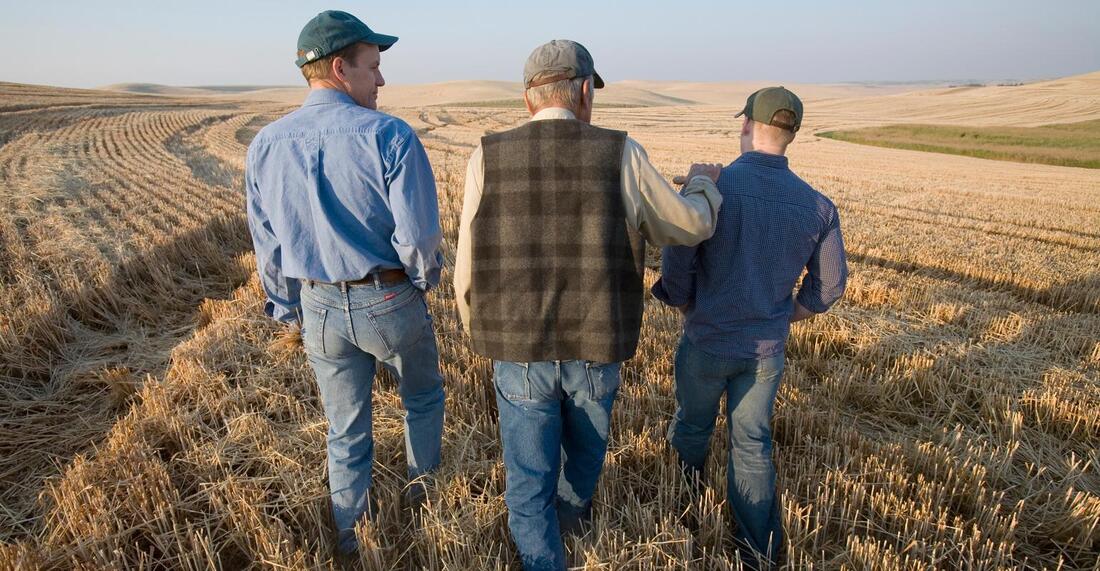
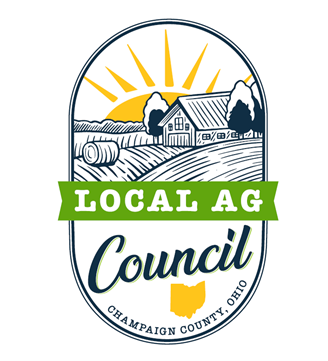

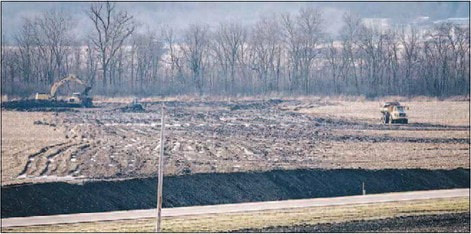

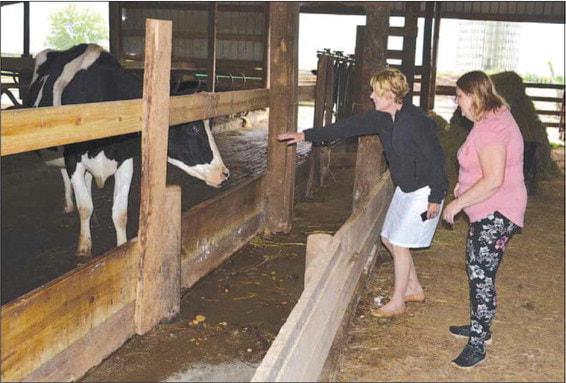
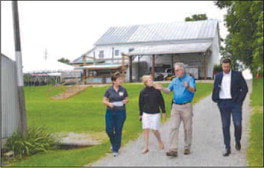


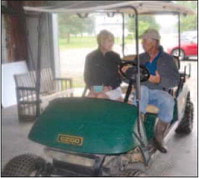
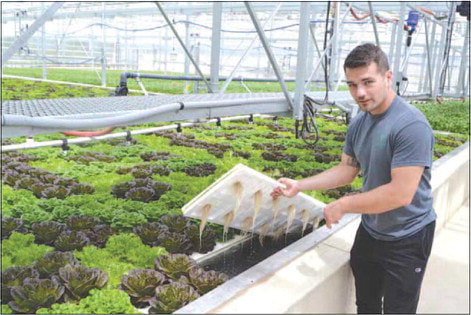


 RSS Feed
RSS Feed










